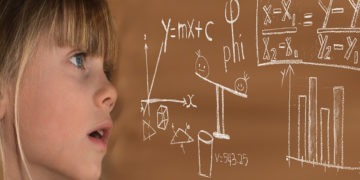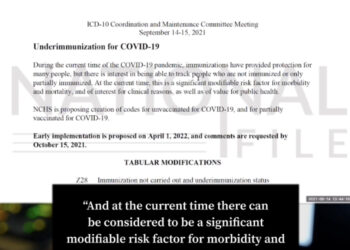Last Updated on October 3, 2019
Washington State’s Superintendent’s website contains a curriculum, couched in Critical and Race Theory language, called the “K-12 Math Ethnic Studies Framework.”
We’ve heard it all before; math is racist, data and per capita promotes white supremacist narratives.
Several other pieces and statements from professors have suggested that racism lies in the most seemingly innocuous things.
But the numbers don’t add up.
According to Washington State, math has deep ties to Ethnic Studies if only one removes the wool pulled over their eyes from decades of pro-Western propaganda.
Some of the themes from the curriculum include: ‘Origins, Identity, and Agency’; ‘Power and Oppression’; ‘History of Resistance and Liberation’; and ‘Reflection and Action’–adding a whole new dimension as to how we view numbers.
My Northwest uncovered some of the planned alterations to the public school curriculum.
The first theme- “Origins, Identity, and Agency” – promises to interrogate the following:
Origins, Identity and Agency, as defined by ethnic studies, is the ways [sic] in which we view ourselves as mathematicians and members of broader mathematical communities. Mathematical theory and application is rooted in the ancient histories of people and empires of color. All human endeavors include mathematical thinking; from humanities to the arts to the sciences.
While learning about algebra, the student will be treated to a hefty dose of post-colonial studies.
Or, alternatively, a link could be made between the origins of algebra and the Arab Slave Trade–but, alas!, it probably won’t fit their narrative.
The second theme – “Power and Oppression” – goes onto say:
Power and oppression, as defined by ethnic studies, are the ways in which individuals and groups define mathematical knowledge so as to see “Western” mathematics as the only legitimate expression of mathematical identity and intelligence. This definition of legitimacy is then used to disenfranchise people and communities of color. This erases the historical contributions of people and communities of color.
According to the third theme, the use of mathematics is an “act of liberation”:
The history of resistance and
liberation, as defined by ethnic
studies, is the stories, places,
and people who helped liberate
people and communities of
color using math, engineering,
and technology. Access to
mathematical knowledge
itself is an act of liberation.
The fourth and final theme, brimming with activist connotations as to how math can be implemented to further political goals, states:
Student action, as defined by ethnic studies, is fostering a sense of advocacy, empowerment, and action in the students that creates internal motivation to engage in and contribute to their identities as mathematicians. Students will be confident in their ability to construct & decode mathematical knowledge, truth, and beauty so they can contribute to their experiences and the experiences of people in their community.
Progressive states are almost unchallenged when inserting politically-loaded forms of education into their curricula.
The use of racially-inflammatory language (“This definition of legitimacy is then used to disenfranchise people and communities of color. This erases the historical contributions of people and communities of color.”) in a curriculum to teach something as secular and value-free, such as mathematics, demonstrates a pernicious level of bad faith from those who draft these teaching materials.



















